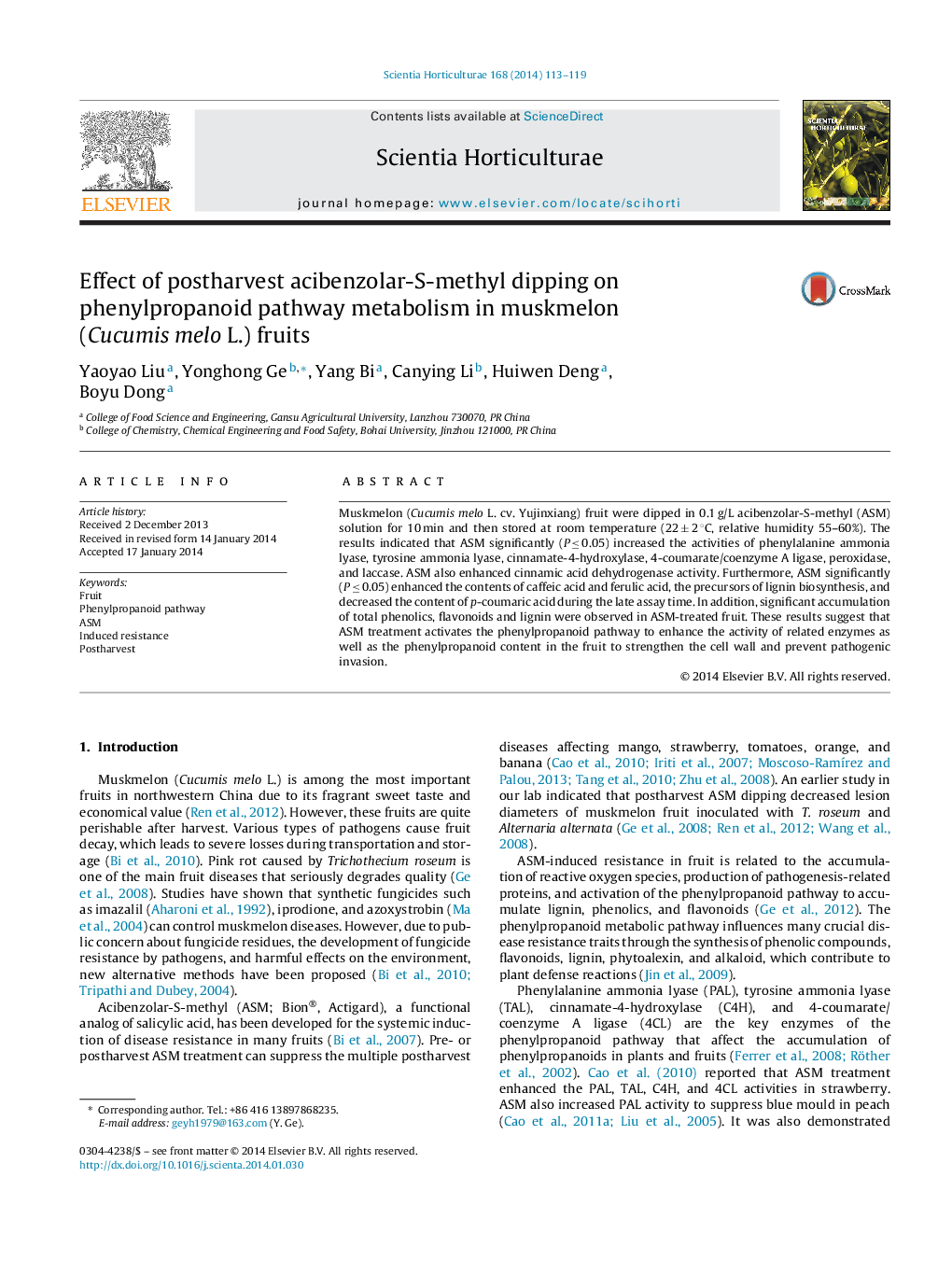| Article ID | Journal | Published Year | Pages | File Type |
|---|---|---|---|---|
| 4566899 | Scientia Horticulturae | 2014 | 7 Pages |
•ASM dipping induced disease in muskmelon fruit.•Defense responses in ASM-induced fruit include activation of the main enzymes in phenylpropanoid pathway.•Content of phenylpropanoids were also induced by ASM.
Muskmelon (Cucumis melo L. cv. Yujinxiang) fruit were dipped in 0.1 g/L acibenzolar-S-methyl (ASM) solution for 10 min and then stored at room temperature (22 ± 2 °C, relative humidity 55–60%). The results indicated that ASM significantly (P ≤ 0.05) increased the activities of phenylalanine ammonia lyase, tyrosine ammonia lyase, cinnamate-4-hydroxylase, 4-coumarate/coenzyme A ligase, peroxidase, and laccase. ASM also enhanced cinnamic acid dehydrogenase activity. Furthermore, ASM significantly (P ≤ 0.05) enhanced the contents of caffeic acid and ferulic acid, the precursors of lignin biosynthesis, and decreased the content of p-coumaric acid during the late assay time. In addition, significant accumulation of total phenolics, flavonoids and lignin were observed in ASM-treated fruit. These results suggest that ASM treatment activates the phenylpropanoid pathway to enhance the activity of related enzymes as well as the phenylpropanoid content in the fruit to strengthen the cell wall and prevent pathogenic invasion.
